An urban explorer walks into a frozen world near the Swiss border—once tied to a Fiat CEO, later seized by scandal. He wants proof the empire really fell; the floors, the silence, and the secrets want something from him in return.
A Palace That Shouldn’t Exist
Palm trees whisper over gravel as he crosses a horse field in the cold north of Italy, where palms shouldn’t live and mansions this grand shouldn’t be abandoned.

Then the house appears—five stories masquerading as three, stone stairs sweeping up to four pillars on slabs of pale marble. He inhales, steadies the camera, and climbs.
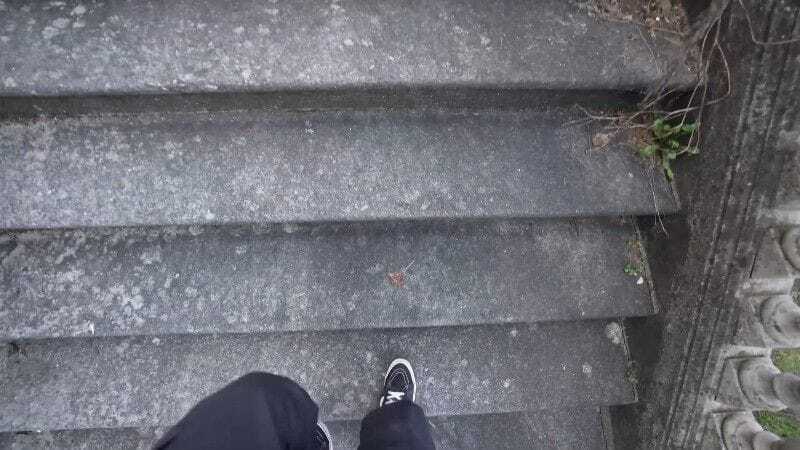
He finds a way in underground, past hulking columns and tiled stalls that look like showers, the air stale and wet, the light thin. The place feels carceral, like wealth built a basement to forget things.
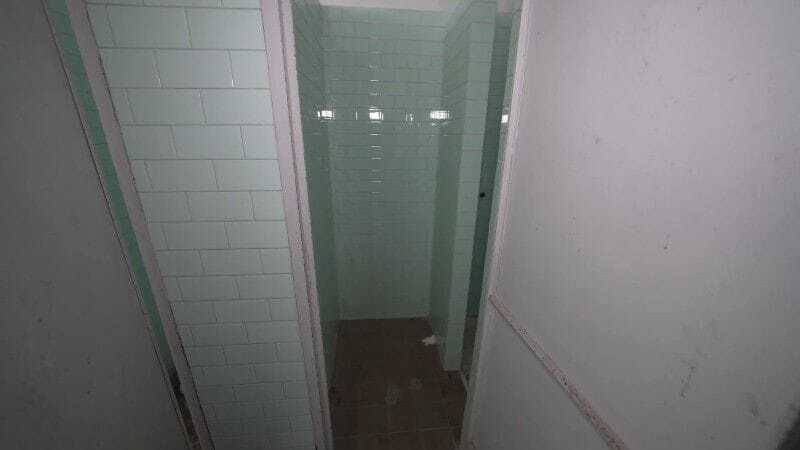
The Door Opens, and the Past Breathes
Up one staircase and he’s in the grand hall—marble pillars marching to a painted sky, a chandelier missing from its scar in the ceiling. Dust hangs where introductions once did.
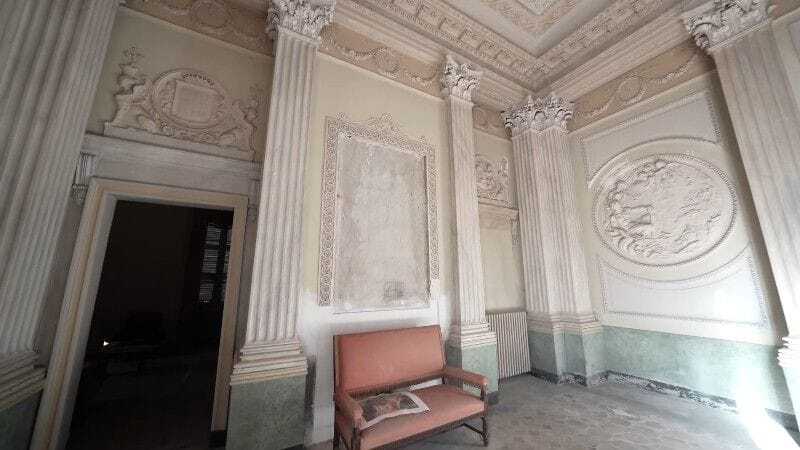
He turns and meets her gaze: the head of Medusa, carved in stone, a boar anchored beneath. Sunlight flares across cracked parquet, like the room is blinking awake.
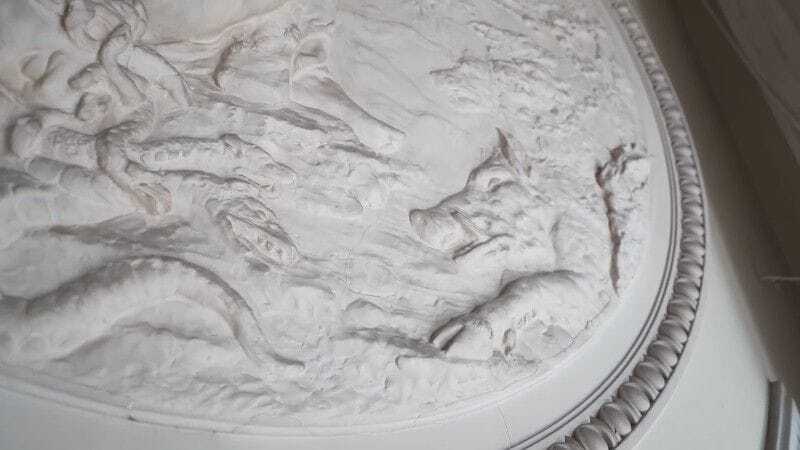
The front doors could hold back a siege—thick wood, layered locks, an arch that dares you to try. Above them, coffered squares glow white and gold, a ceiling that still believes in itself.
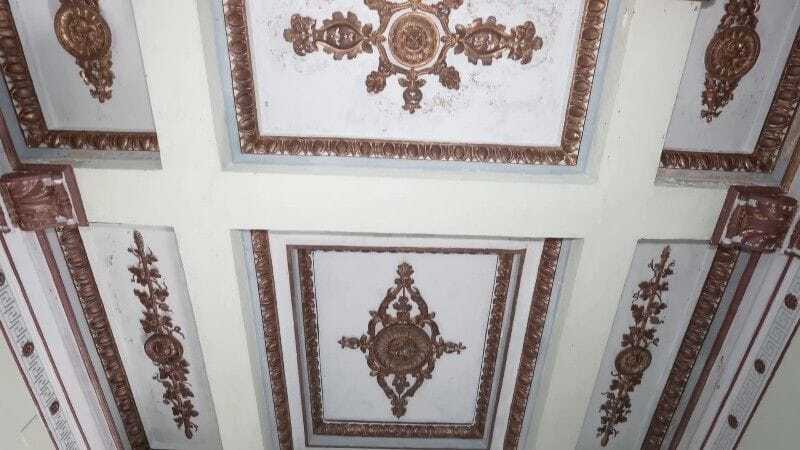
Marble Stairs, Secret Games
The main staircase gleams—yellow, blue, and white running up the balustrade, everything he touches cool to the skin. It goes and goes, and he follows, breath bouncing off stone.
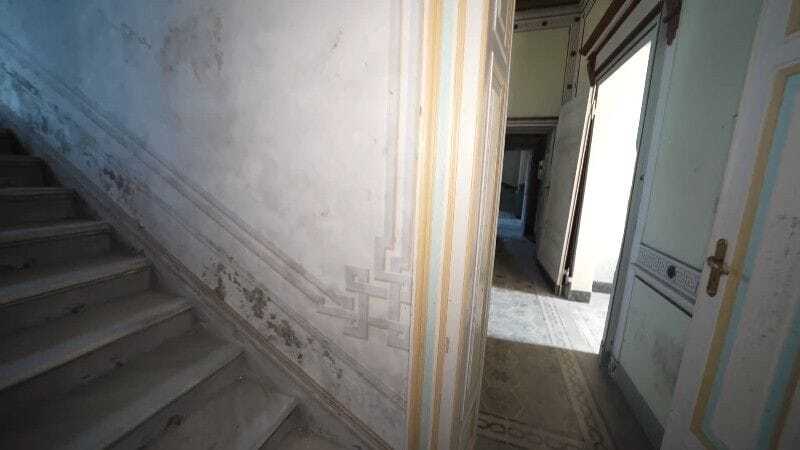
Through French doors, a pool table waits the size of a small car. Faces cast in metal grin from the corners; their mouths tilt open to spit returned balls—old-world engineering disguised as mischief.
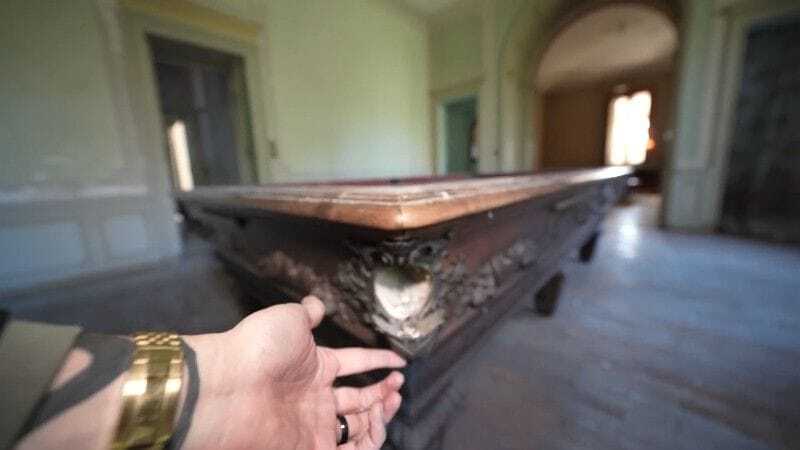
Next room, a low coffee table holds a heavy trophy topped with a horse. The living space hums with mid-century lines and long curtains, like a party paused mid-sentence.
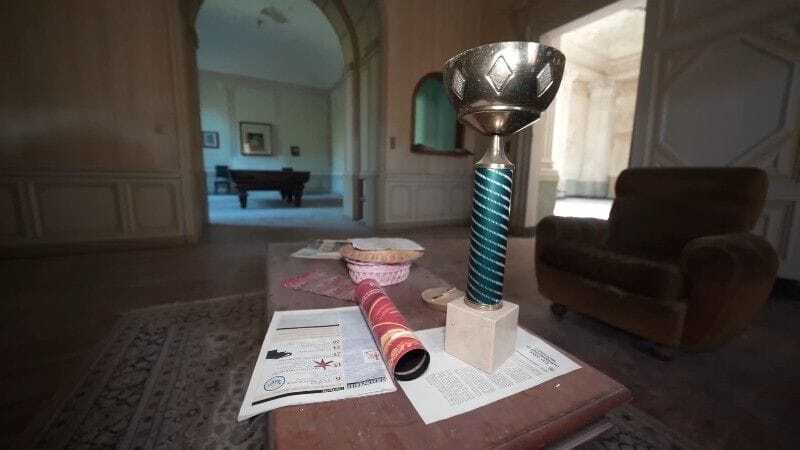
In the dining room, the ceiling blossoms with paint, and a map of Rome rests on a small table like someone meant to trace a route and never did.
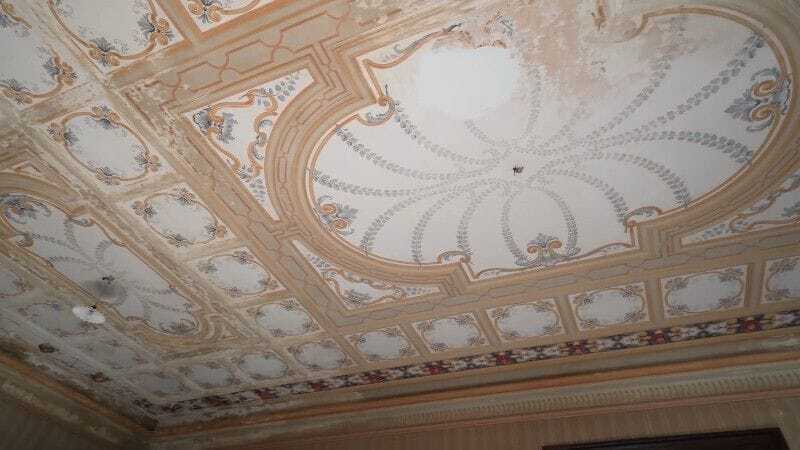
He opens a cabinet padded in floral silk. Skeleton key turns, hinges sigh, glassware winks at the light as if relieved to be seen.
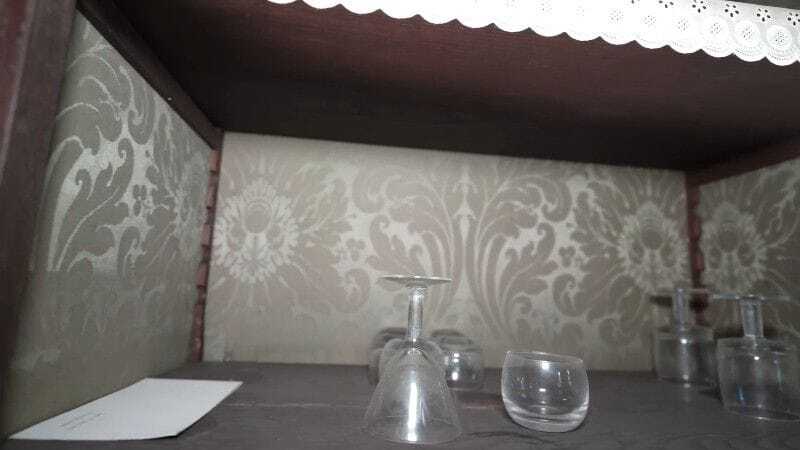
Trophies march across a mantle—chalices on marble feet, heavy as guilt. Each one says a horse ran hard for this family.
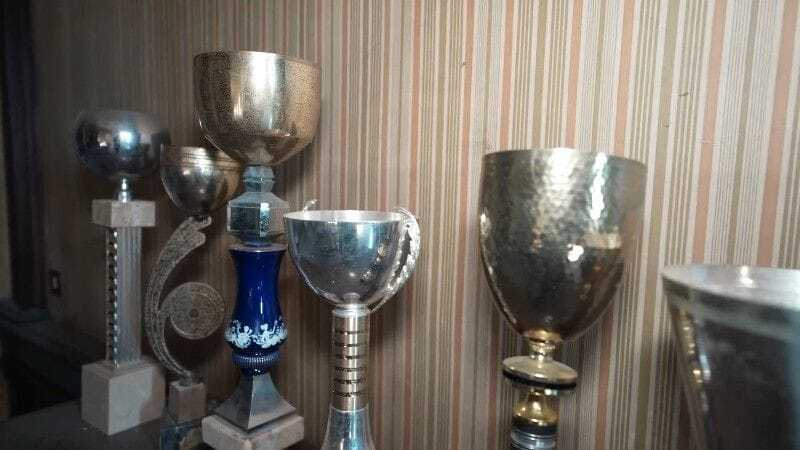
A House That Kept Working After Everyone Left
He finds the elevator—black shaft dropping through the floors, a box barely big enough for two secrets. This house gave options: rise, or vanish.
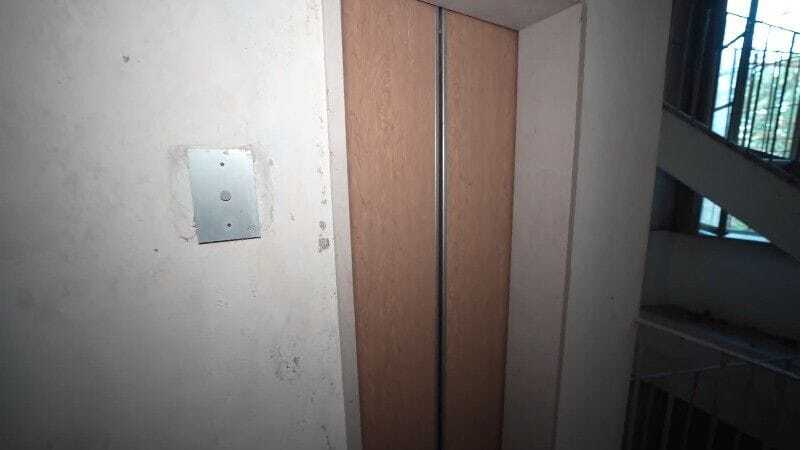
Above the showpieces, the ceilings drop. A narrow bed, a fluorescent tube, stone-topped dressers chipped and clean of keepsakes. Servants once woke here to make other people’s mornings seamless.
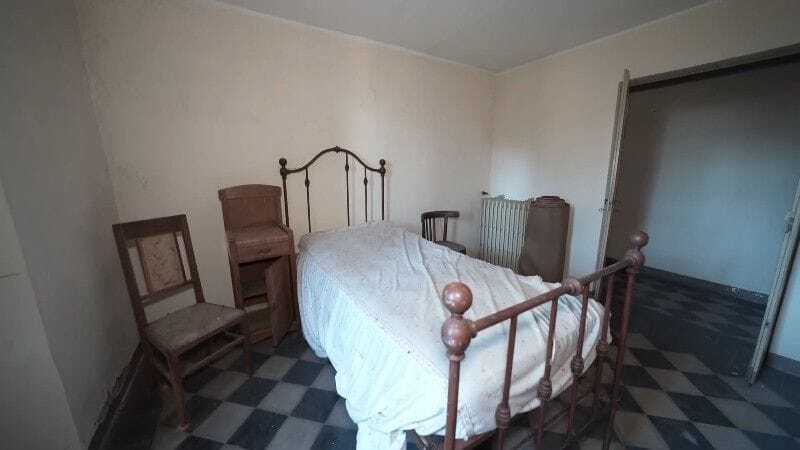
Down the corridor, a larger room holds horse muzzles, small religious figures, and a scatter of trophies beside a beach photograph so blue it feels cruel. Lives arranged around other lives.
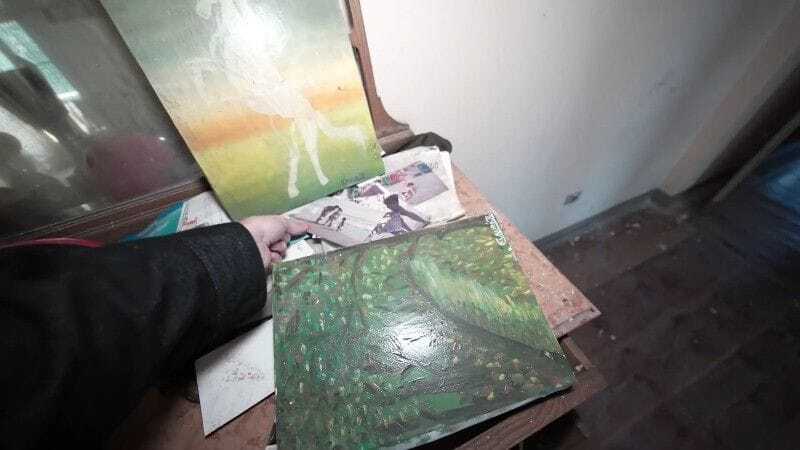
Farther on, a squat living area glows yellow and modern, with a compact kitchen that still holds plates and a refrigerator light that clicks on like muscle memory. The house wasn’t one era; it ate time in layers.
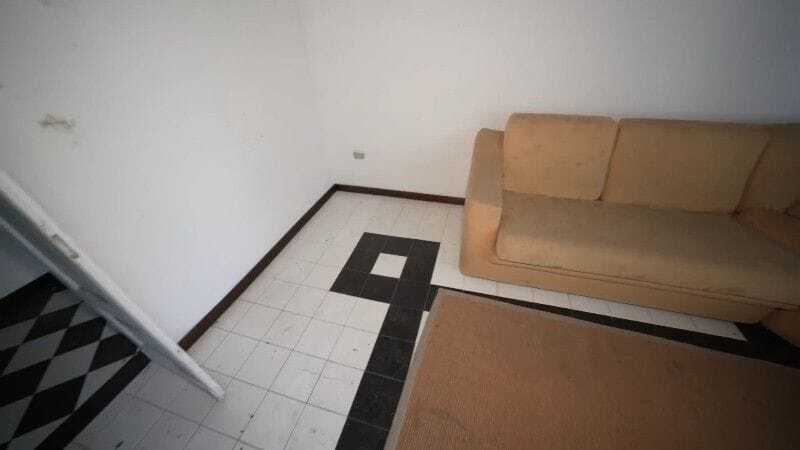
The Red Room Refuses to Forget
He slides open a door and stops. A crimson dining room opens like a stage set: long table, chairs poised, newspapers dated September 1965 spread like fresh evidence. The air tastes like velvet and dust.
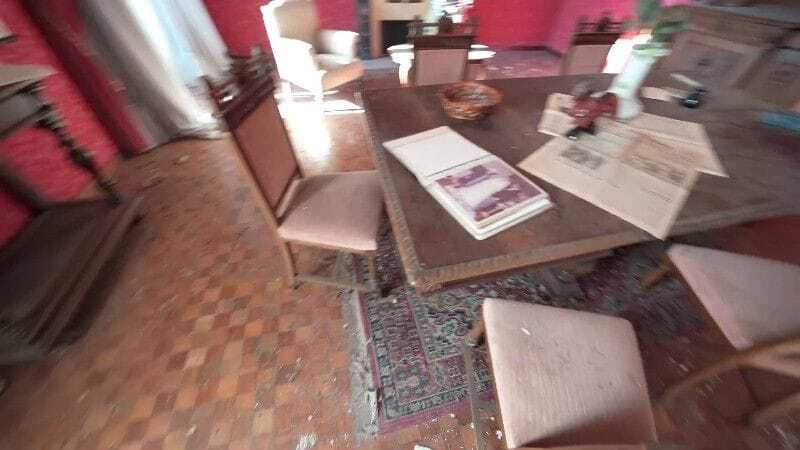
Cabinets with stained glass hold nothing and everything—a feeling, a habit, a key that still fits. Old photo albums line up, heavy as bricks. He turns a key, and the case gives.
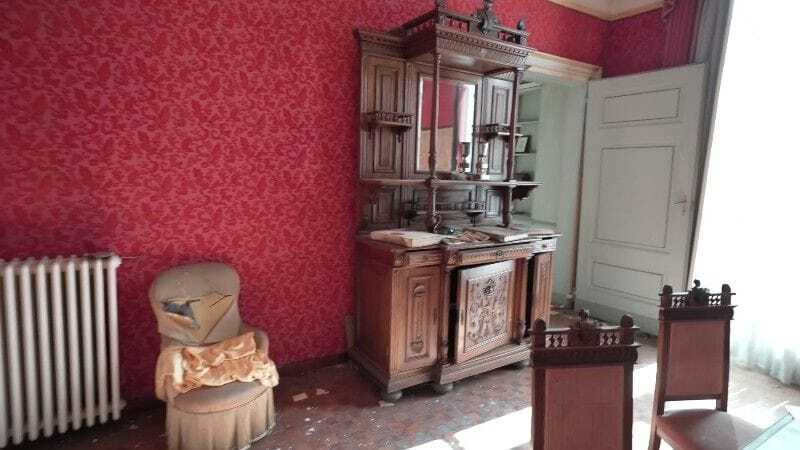
Then the library. It wraps the walls in carved wood, every shelf exact, every drawer a love letter to craft. He breathes in paper, polish, a century.
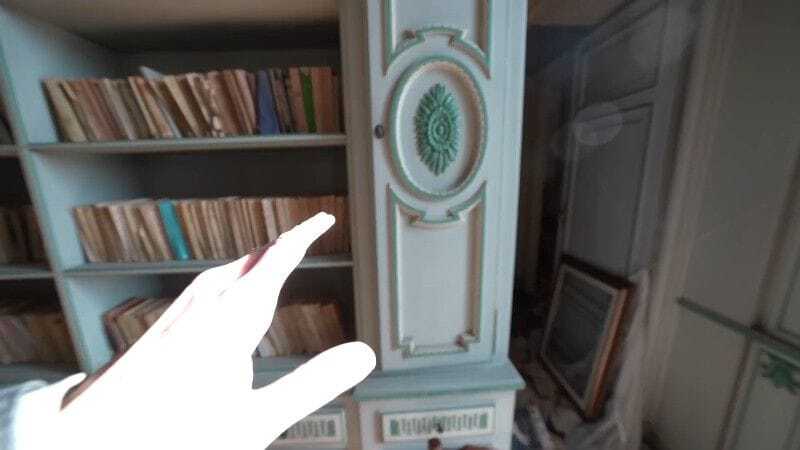
On a lectern, he finds a book stamped 1495—older than revolutions, older than cars, older than the lies that built this place. He doesn’t touch the page; reverence does the touching for him.
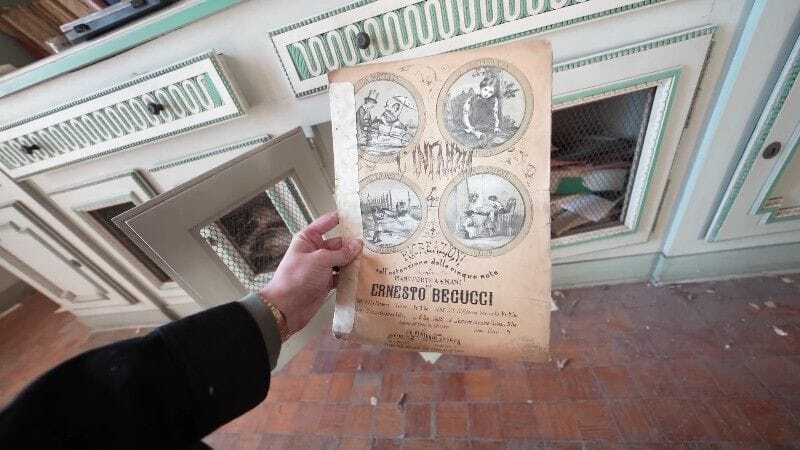
He Burns the Stair Minutes, One Room at a Time
A bedroom door opens to painted trim that mirrors a riotous ceiling—pink stripes, yellow borders, a decision to live big even where you sleep. Someone matched the door to the sky.
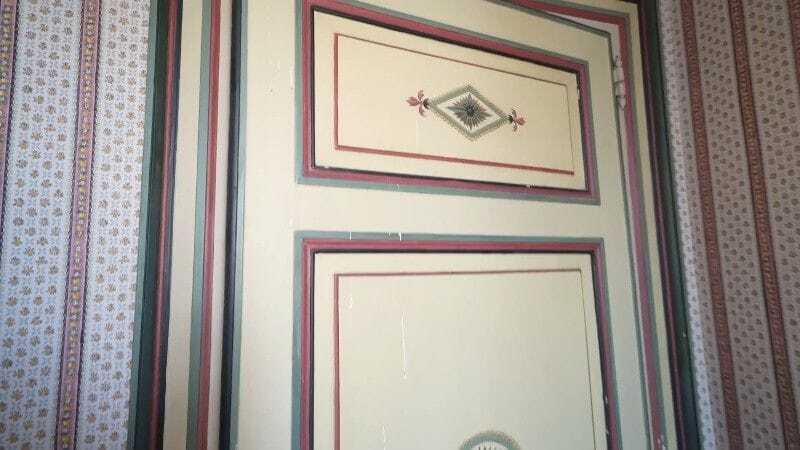
Back in a marble-topped kitchen, the stove and sink nest inside stone so thick it anchors the room to earth. Black & Decker vacuum in the corner, as if chores paused mid-sound.
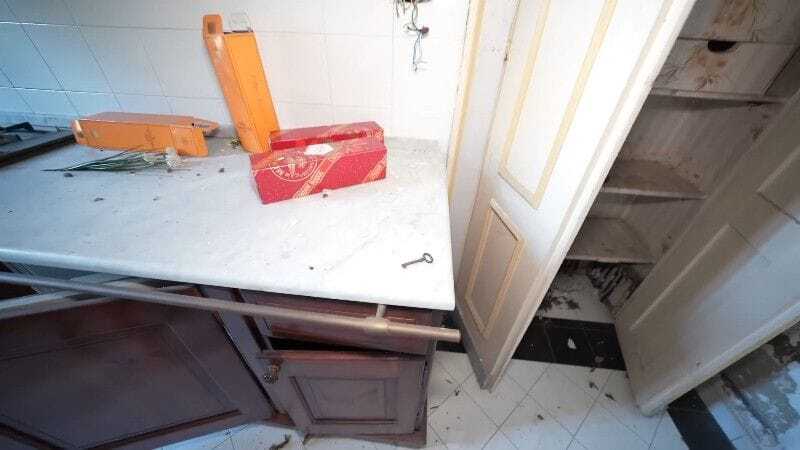
He steps into a master with a chandelier that refused to be stolen. A mattress slumps, but the room still sits straight-backed, waiting.
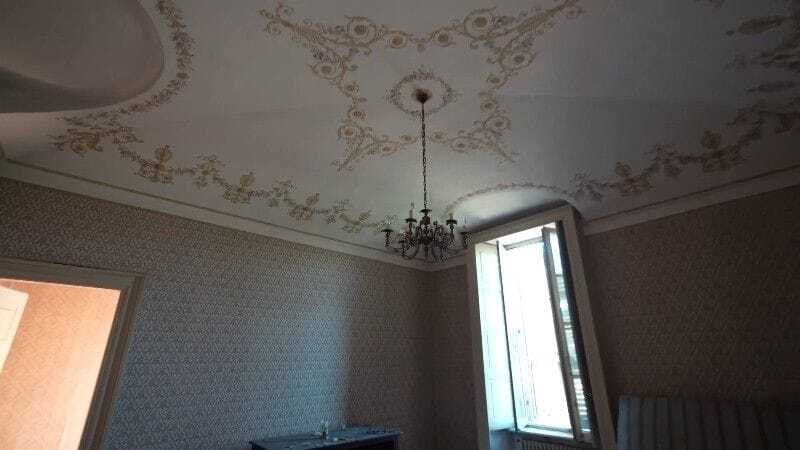
Bedrooms Speak in Pink and Blue
Up one more flight, a bed with twin mattresses edges together but not touching. Two lives side by side, walls blushed pink, a chandelier softening the air. The dresser hides a door; they blocked passage with furniture when the locks weren’t enough.
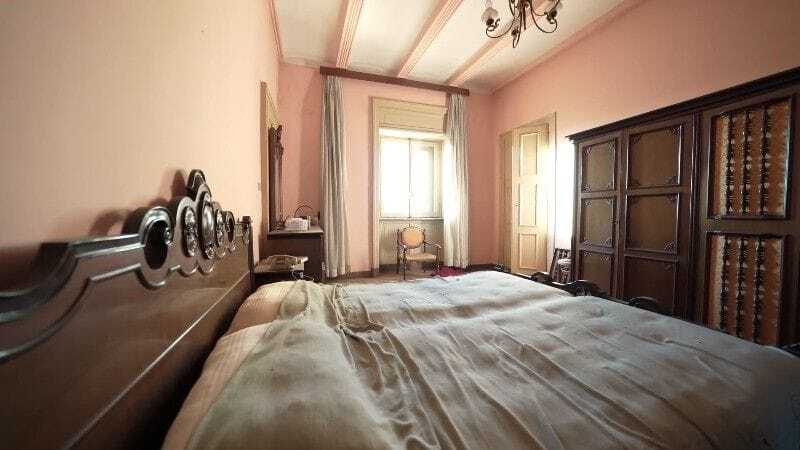
He detours into a teal storage room, where leather shoes curl at the toes, the way old hands do. He turns a device on the wall that looks like time trying to regulate itself.
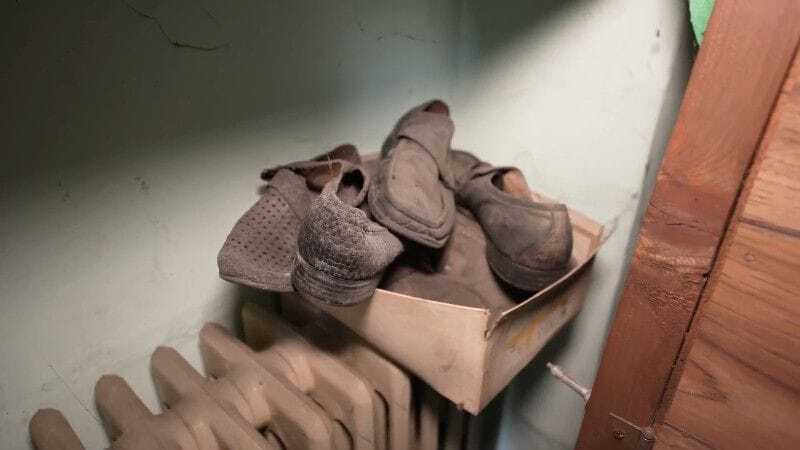
Two small beds sit in formation in the next room, rugs under their feet, boots under a chair. A shared nightstand—some nights, siblings negotiated in whispers.
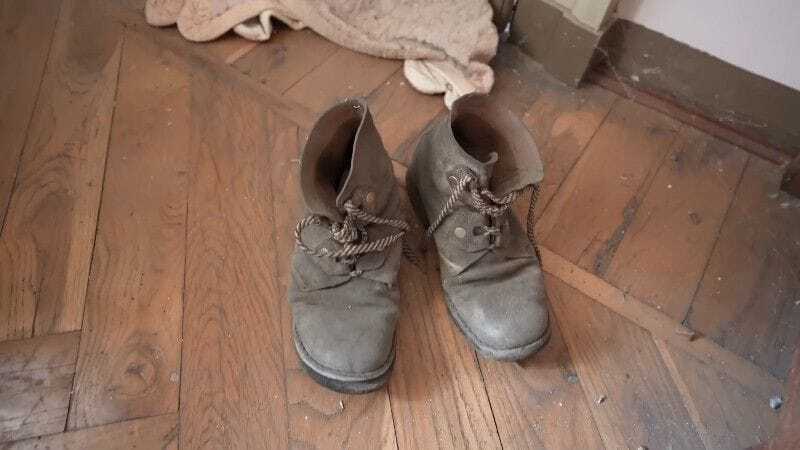
He crosses into a vast bedroom where an animal-skin rug has been stitched from many lives, cut into shapes, reassembled. Two matching beds face a pair of couches, as if sleep and conversation were equals.
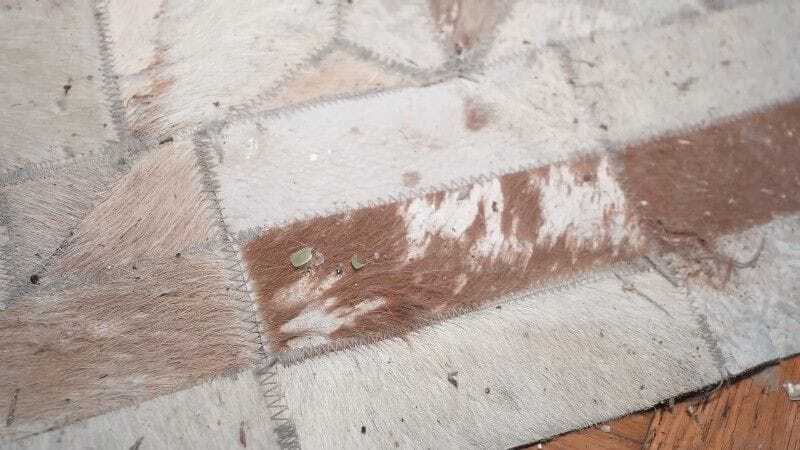
Another room keeps a bed dressed in a glossy cover, nightstands capped with stone. The door to the next room is sealed—a habit here, turning paths into walls.
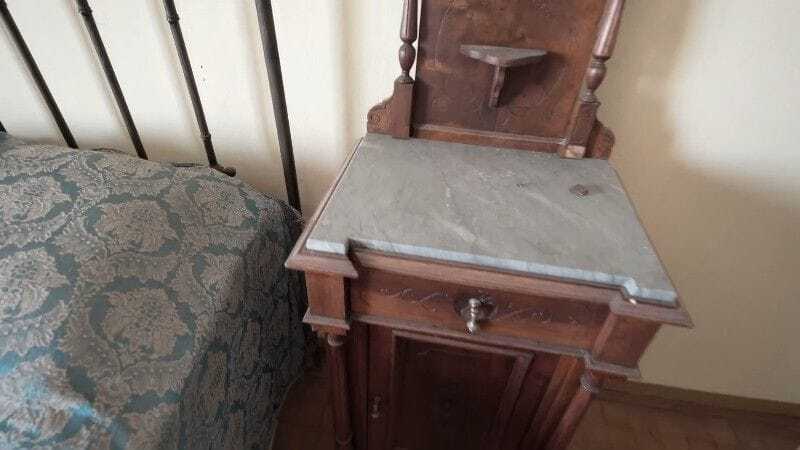
At the corridor’s end, the bathroom glows blue—tiles, tub, the cold certainty of porcelain. Somewhere below, the pink one waits like a memory of its counterpart.
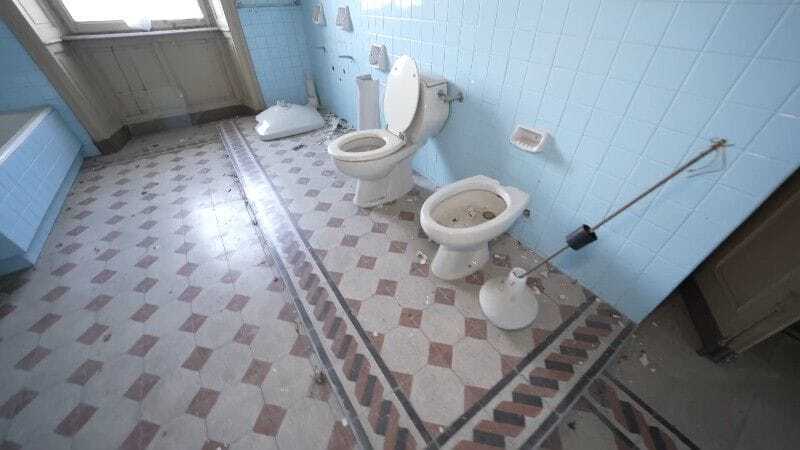
The House Tests Him, Then Lets Him Go
He squeezes up a spiral into the attic heat and freezes. A wasp nest blooms from a beam, the size of a small planet. Empty or not, it keeps its power. He backs away, heartbeat loud enough to wake the house.
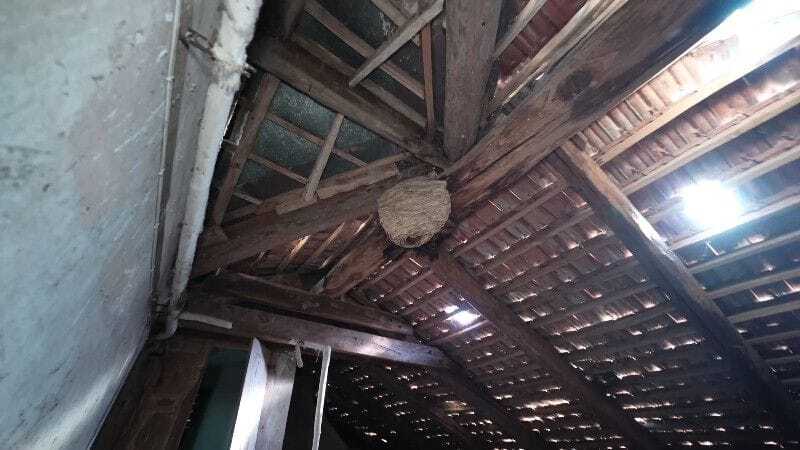
He climbs one last turn into open air. Rooftops and treelines roll out; the mansion breathes under him. Somewhere in these rooms, someone once believed they could not fall. He knows better now.
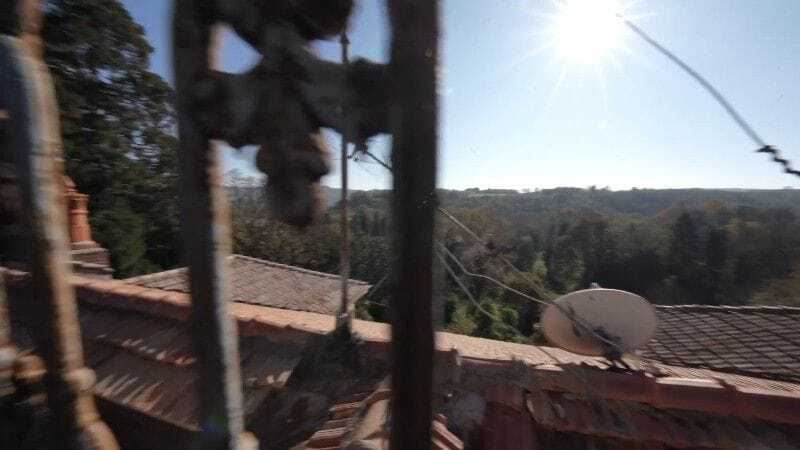
He came for proof and found it: fortunes curdle; beauty lingers; the ordinary—keys, cups, a map of Rome—outlives the extraordinary. He heads down, past Medusa and the marble, carrying only what will fit: the weight of a quiet empire, and the hush that follows when the doors finally close.
